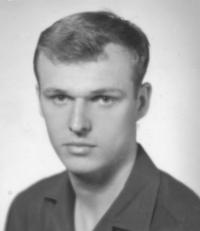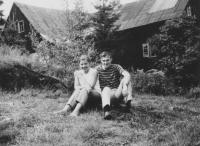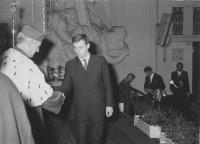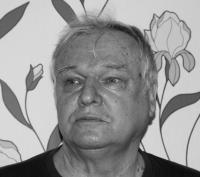I don’t want to judge politicians, I don’t know how I would have behaved

Stáhnout obrázek
Karel Polanský was born at the end of World War II, on 24 April 1945, in Starý Plzenec. Soon after, his family returned to Pilsen, they lived near Bory Prison in the city‘s outskirts. His parents divorced when he was 10, his mother married a second time, but this marriage did not last long either. After primary school the witness studied at a secondary school of electrical engineering. In his last year of secondary school he became fascinated with political economics, and so he applied to the University of Economics in Prague. He and his mother moved to Prague-Vysočany. Besides studies of international trade, he also took an interest in politics; he attended various cultural events and political meetings during Prague Spring. And so the Soviet invasion of 21 August 1968 came as a shock to him, as it did to the nation in general. He spent the whole day in the streets and watched as Prague was occupied by soldiers of the Warsaw Pact. A year later he decided to ignore cautions of the security forces and to participate in a protest on the occasion of the one-year anniversary of the occupation. However, he failed to join one of the protest groups and was soon arrested in the centre of Prague. He was interrogated and interned in Pankrác and Ruzyně prisons for three weeks. A lack of evidence led the court to drop charges of breach of the peace. After compulsory military service Karel Polanský later worked in financial posts at several state companies and, before his retirement, also at a private security company.



